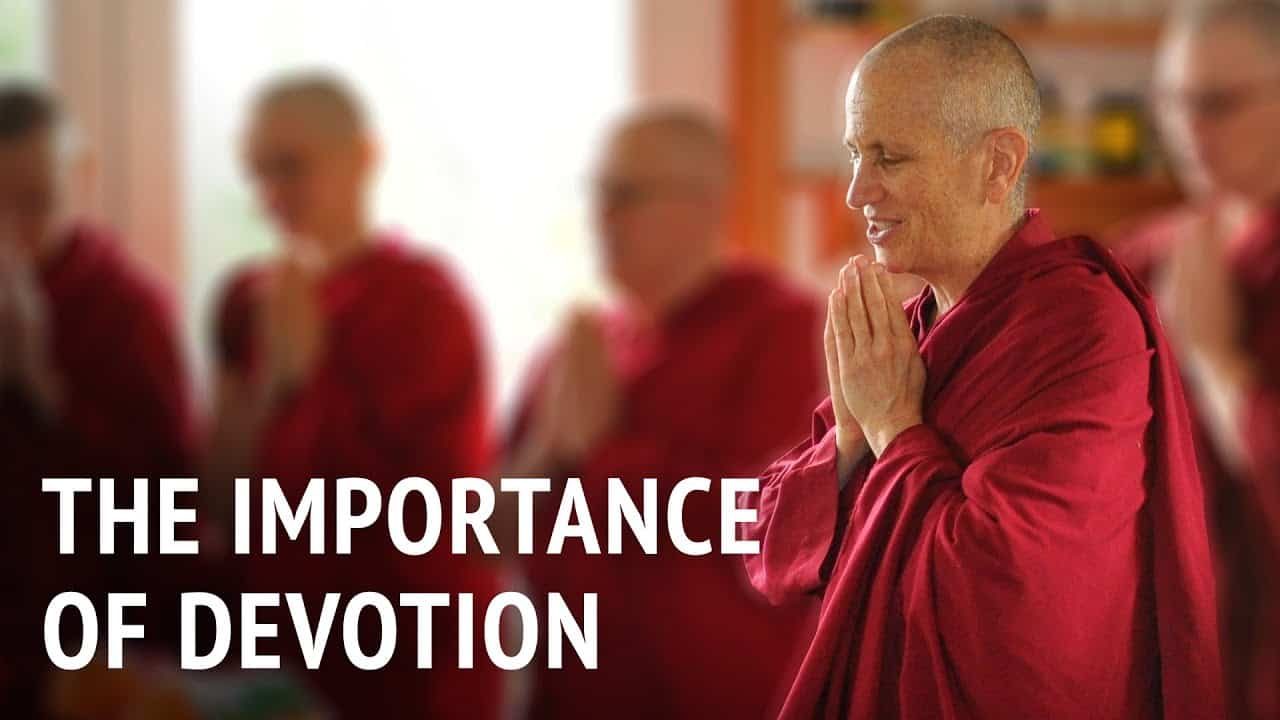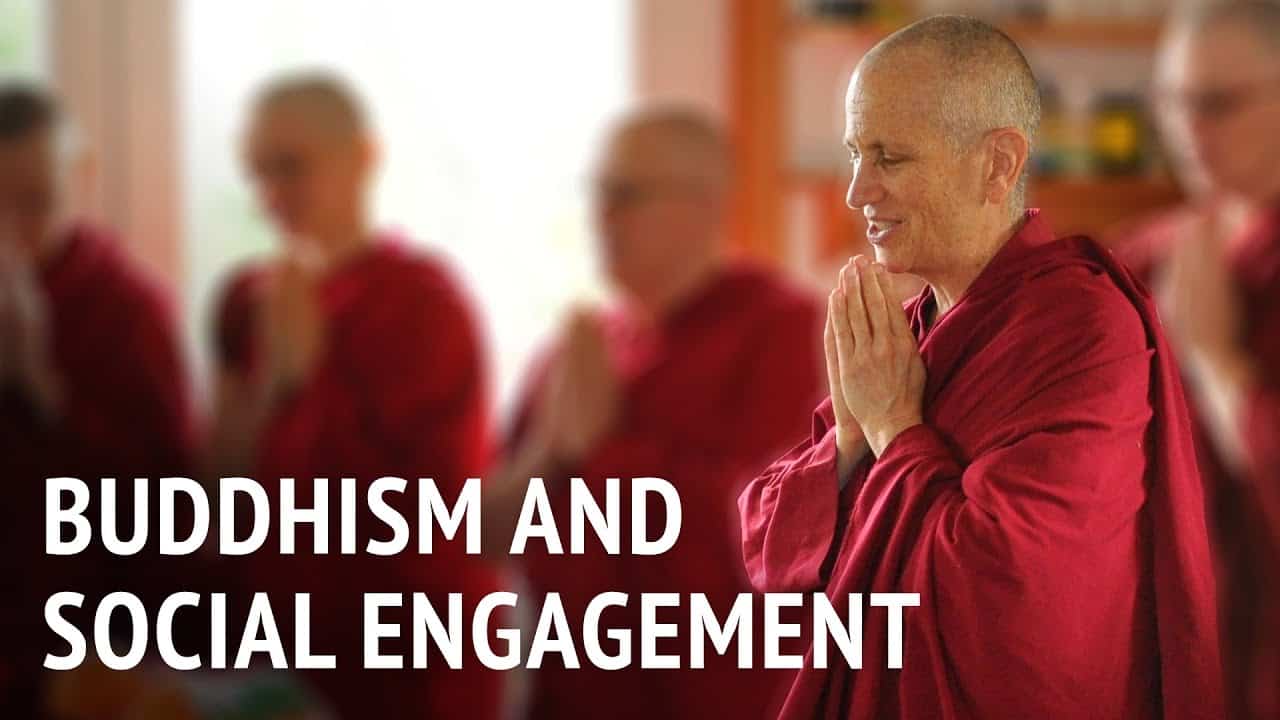Buddhism in professional life
In these interviews, recorded by a team from studybuddhism.com, Venerable Thubten Chodron answers questions about her life and what it means to be a Buddhist in the 21st century.
You find what is your passion in life, what is your special talent, what is there in your heart that you want to contribute to society that would really benefit others.
Then, you do that with a Dharma motivation, and bringing the Dharma into what you’re doing. For example, I have a friend who is an MBA, and worked in Hong Kong at Levi Strauss for many years, and then she was requested to teach some other business students at some college, I can’t remember which one.
So she was coming in, not as a Buddhist, but as an MBA who’s teaching business and business practices. But in the class, what she did was to bring up all kinds of ethical dilemmas that you can face in business.
And so it was fascinating, because she got all these young future business people thinking about ethical conduct, which I think is so essential for them to have good careers, and for business to be able to thrive in an honest way, and be respected as an occupation in the West.
This was really her passion. She loved doing that, and then she put in the Buddhist ethics. Not speaking Dharma at all, but just putting that in in the way she taught, to get people thinking about that. I think that any layperson can do that, to find what it is that is your talent and your passion, and to offer that to society, and incorporate various aspects of the Dharma into it.
And you can do that without using one Dharma word, okay? You don’t have to speak Dharma jargon or a foreign language or anything, yeah? Because so much of the Buddha’s teachings are just basic common sense, and you bring that in to your occupation.
Also, you make sure that you have a strong daily practice. Because if you only work and you neglect to nourish your own heart through your Dharma practice, after a while, you’re gonna get exhausted. This is what they call “burnout.”
So it’s very important that you have a daily meditation practice, even if it’s short, you do something in the morning and you set your motivation. And you do something, even short, in the evening to review the day, and do some purification. And go to Dharma classes when you can, go to retreats when you can, listen to videos and things like that when you can.
In other words, just as we take care of our body and nourish our body, and we don’t neglect that, we need to nourish our heart and not neglect that, every day.
Venerable Thubten Chodron
Venerable Chodron emphasizes the practical application of Buddha’s teachings in our daily lives and is especially skilled at explaining them in ways easily understood and practiced by Westerners. She is well known for her warm, humorous, and lucid teachings. She was ordained as a Buddhist nun in 1977 by Kyabje Ling Rinpoche in Dharamsala, India, and in 1986 she received bhikshuni (full) ordination in Taiwan. Read her full bio.


